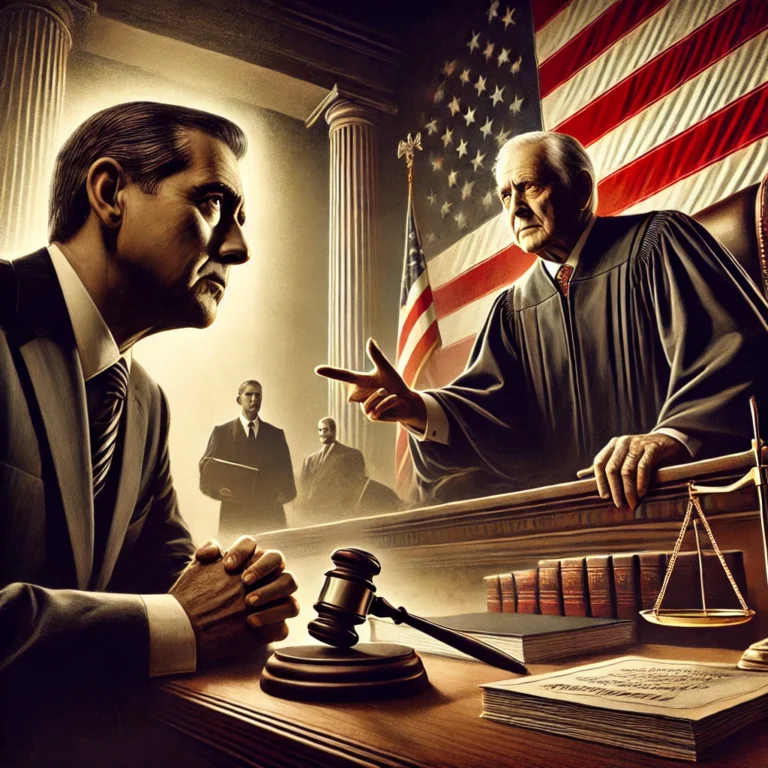
In a recent and unprecedented move, President Donald Trump invoked the Alien Enemies Act of 1798 to expedite the deportation of alleged members of Venezuela’s Tren de Aragua gang, labeling them as threats to national security. This action has sparked significant legal and ethical debates, especially following the administration’s deportation actions despite a federal judge’s order to halt them.
The Alien Enemies Act: A Historical Overview
Enacted in 1798, the Alien Enemies Act grants the U.S. president authority to detain and deport non-citizens from hostile nations during times of war or invasion. Historically, it has been invoked sparingly, primarily during major conflicts such as the War of 1812, World War I, and World War II. Notably, during World War II, the act was used to justify the internment of Japanese Americans—a decision now widely condemned as a grave injustice.
President Trump’s Invocation and Subsequent Legal Challenges
On March 15, 2025, President Trump invoked the Alien Enemies Act, citing an invasion by the Tren de Aragua gang, a Venezuelan criminal organization. This proclamation aimed to facilitate the immediate apprehension, detention, and removal of Venezuelan nationals affiliated with the gang, bypassing standard immigration procedures.
Civil liberties organizations, including the American Civil Liberties Union (ACLU) and Democracy Forward, swiftly challenged this invocation, arguing that the act is intended for use during formal wars against nation-states, not against non-state actors like criminal gangs. They contended that the administration’s actions circumvented due process and existing immigration laws.
Federal Judge’s Intervention
In response to the lawsuit, U.S. District Judge James Boasberg issued a temporary restraining order on March 15, 2025, blocking the administration from deporting individuals under the Alien Enemies Act without proper hearings. Despite this order, reports indicate that deportation flights proceeded, leading to the removal of alleged gang members to El Salvador. The administration argued that the flights had departed before the court’s injunction was issued, a claim met with skepticism by the judiciary.
Judicial Scrutiny and Government Accountability
During subsequent hearings, Judge Boasberg expressed frustration over the administration’s actions, particularly the deportations conducted after his order to halt them. He demanded detailed explanations from the Department of Justice (DOJ) regarding the timeline and decision-making process that led to the continuation of deportation flights despite the court’s directive. The judge emphasized the importance of adherence to judicial orders and the potential consequences of executive overreach.
Implications for Executive Authority and Civil Liberties
The administration’s reliance on the Alien Enemies Act to address modern immigration challenges raises critical questions about the balance between national security and individual rights. Legal experts argue that using a law designed for wartime against nation-states to target non-state actors sets a concerning precedent. This approach could potentially erode due process protections and expand executive power beyond its intended limits.
Public and Political Reactions
The invocation of the Alien Enemies Act has elicited diverse reactions across the political spectrum. Supporters argue that decisive action is necessary to protect national security and address the threats posed by international criminal organizations. Critics, however, view this move as an overreach of executive power that undermines constitutional safeguards and targets vulnerable immigrant communities. The historical association of the act with past injustices, such as the internment of Japanese Americans, further fuels concerns about potential abuses.
Conclusion
The Trump administration’s unprecedented use of the Alien Enemies Act to deport alleged gang members without due process has sparked significant legal challenges and debates about executive authority. The judiciary’s intervention underscores the importance of checks and balances in safeguarding individual rights against potential governmental overreach. As this situation unfolds, it highlights the ongoing tension between ensuring national security and upholding the constitutional principles that define the United States.
Note: This article is based on information available as of March 17, 2025.



